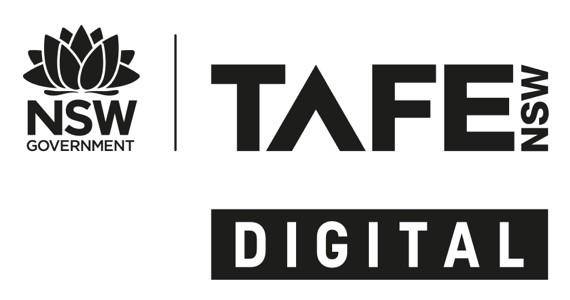If you’ve ever dreamt of working in Australia, now is the perfect time to turn that dream into reality. Thanks to TAFE NSW’s government-sponsored trade programs, international skilled workers are in high demand — and the Australian government is offering pathways that include employer-sponsored visas, generous salaries, and high job security.
In this post, we’ll explore how you can leverage TAFE NSW’s trade education programs to enter Australia’s booming job market, especially in high-demand sectors like construction, plumbing, automotive, and electrical trades. If you’re looking to work in Australia with visa sponsorship, this could be your golden opportunity.
Why Australia is Opening Doors to International Trade Workers
Australia has long depended on skilled migration to fill essential trade and vocational roles. However, recent shortages in the post-pandemic economy have made trade workers even more valuable. According to the Australian Government’s Jobs and Skills Report, industries like plumbing, electrical, carpentry, and aged care are experiencing critical shortages.
To counter this, the government has partnered with TAFE NSW, one of Australia’s largest vocational education and training providers, to streamline training and migration pathways for skilled workers.
Key government incentives include:
- Employer-sponsored Temporary Skill Shortage (TSS) visas (subclass 482)
- Permanent residency pathways through the Employer Nomination Scheme (subclass 186)
- Higher earning potential, with starting salaries averaging AUD 70,000 and rising with experience
- Free or subsidized training through TAFE NSW Skill Shortage Initiatives
What is TAFE NSW and Why It Matters for Job Seekers
TAFE NSW (Technical and Further Education New South Wales) is a government-owned institution delivering high-quality vocational education across multiple campuses in Australia. It provides practical, job-ready training and industry certifications that are recognized nationally.
Through programs like TAFE NSW’s JobTrainer, international students can:
- Gain Australian-recognized trade qualifications
- Train in high-demand sectors
- Become eligible for employer sponsorship
- Access job placement services and industry networking opportunities
Trade Jobs Eligible for Employer-Sponsored Visas in 2025
If you’re wondering which trade jobs are most in demand in 2025, here are some of the top roles that TAFE NSW supports through its training and job placement services:
| Trade Occupation | Average Starting Salary (AUD) | Visa Type | PR Pathway Available? |
|---|---|---|---|
| Electrician | $74,000 | Subclass 482 | Yes (Subclass 186) |
| Carpenter | $70,000 | Subclass 482 | Yes |
| Plumber | $72,000 | Subclass 482 | Yes |
| Automotive Technician | $69,000 | Subclass 482 | Yes |
| Air Conditioning Mechanic | $73,000 | Subclass 482 | Yes |
All these roles fall under the Skilled Occupation List (SOL), making them eligible for employer-sponsored visas.
How to Apply for Trade Training and Employer Sponsorship at TAFE NSW
The application process is straightforward but requires planning. Here are the basic steps:
1. Choose a Trade Program
Visit the TAFE NSW website and explore the International Trade Courses. Make sure the course aligns with Australia’s skilled occupation needs.
2. Meet Entry Requirements
- Minimum education: High school diploma
- English proficiency: IELTS 5.5 or equivalent
- Proof of funds and health insurance
3. Enroll and Begin Training
Courses typically run from 12 to 24 months. TAFE NSW provides hands-on experience and industry placement to boost employability.
4. Secure Employer Sponsorship
Upon course completion, many graduates are matched with Australian employers through TAFE’s Industry Connection Service. If successful, your employer can sponsor your visa under the TSS scheme.
5. Apply for PR Pathway
After two years of full-time work on a TSS visa, you may qualify for permanent residency under the Employer Nomination Scheme (ENS).
Benefits of Working in Australia on a Trade Visa
Australia offers a high quality of life and stable job environment, especially for skilled tradespeople. Here’s what makes it so attractive:
- Competitive Salaries: Trade jobs offer excellent compensation, even at entry-level.
- Work-Life Balance: Standard 38-hour workweeks and paid annual leave
- Health Coverage: Visa holders access Medicare under certain schemes
- Diverse Multicultural Communities: Welcoming atmosphere for international workers
- Permanent Residency Pathways: Structured routes to settle in Australia permanently
Common Challenges and How to Overcome Them
While the opportunities are abundant, here are some hurdles you might face:
1. English Proficiency
Even with trade skills, poor communication can be a barrier. TAFE offers English language support programs to help international students meet visa and work requirements.
2. Cost of Living
Australia is not cheap, especially in cities like Sydney or Melbourne. However, many regional campuses of TAFE NSW are located in affordable areas where cost of living is lower.
3. Skill Gaps
TAFE’s bridging courses can help upskill or reskill workers who need to meet Australian trade certification standards.
Is This Right for You?
Ask yourself the following:
- Are you a skilled trade worker with a passion for practical work?
- Do you have at least a high school education and basic English skills?
- Are you looking for a long-term overseas employment opportunity with visa and residency options?
If yes, TAFE NSW’s employer-linked trade training is a low-risk, high-reward pathway.
Final Thoughts: Why You Should Act Now
With the 2025 Skilled Migration Intake ramping up and TAFE NSW scaling its international outreach, timing is everything. Delaying could mean missing out on open spots, employer networks, and limited visa caps.
Here’s your call to action:
- Visit the TAFE NSW International Portal
- Choose your trade pathway
- Submit your application before the upcoming intake closes
Australia isn’t just calling — it’s hiring. Don’t miss your chance to build your career, earn well, and settle in one of the world’s best countries for skilled migrants.

